Sir David Hempleman-Adams' Atlantic balloon trip called off
- Published
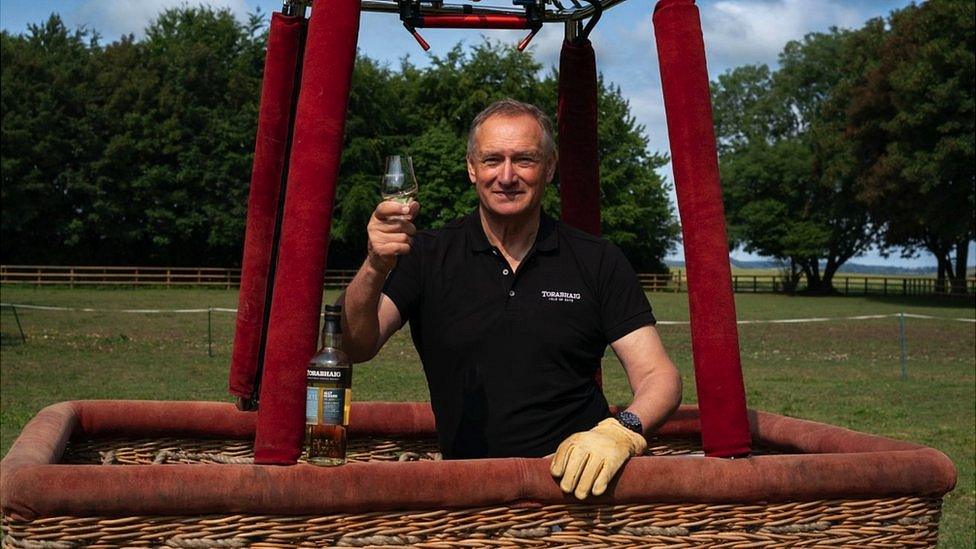
He had planned to collect air samples for scientists during the trip
A British explorer says it is "such a shame" his latest challenge has been postponed.
Sir David Hempleman-Adams and two adventurers were due to fly across the Atlantic in an open basket gas balloon.
They had planned to collect air samples for scientists during the trip.
Sir David, who is from Wiltshire, said they had waited more than three months for the right weather conditions but it was now too late in the year.
"It was very frustrating," he told BBC Radio Wiltshire.
Reduced daylight hours and autumn/winter temperatures meant the journey had to be postponed, he said.
'Not one slot'
The group were in contact with three top meteorologists who gave guidance on weather conditions for their trip.
The explorer said the conditions required "pretty slack winds when you take off, a good track across the Atlantic, and pretty good conditions the other side, so you can land".
"We had all the gear there, and we waited through the whole of July, August, September and halfway through October.
"During that time we did not get one slot," explained Sir David.
"I couldn't drink any alcohol for all that time, which is probably the hardest thing," he added.
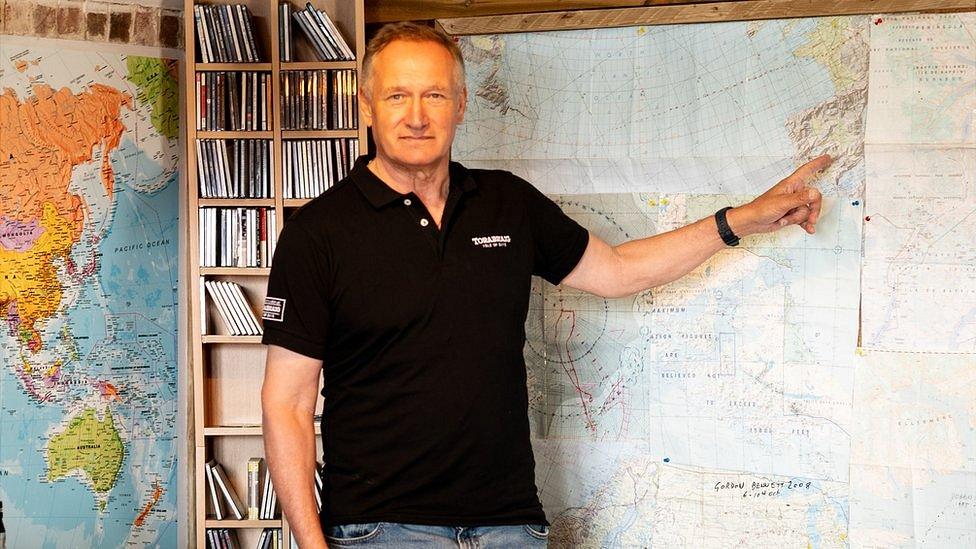
Sir David Hempleman-Adams, 66, first flew across the Atlantic in an open basket balloon in 2003
The adventurer has already crossed the Atlantic twice in an open basket balloon, but this would be the first using hydrogen.
He was due to be accompanied by long-time friends, American balloon manufacturer, Bert Padelt and Swiss explorer, scientist and entrepreneur, Dr Frederik Paulsen.
Their route would have taken them from Maine, USA, over Newfoundland, Canada, before crossing the Atlantic Ocean and landing in Europe.
Weather permitting, the team had planned to fly at an altitude of 6,000ft (1,828m) to 8,000ft (2,438m) and collect samples to discover new microbes that could lead to the discovery of new natural proteins, which could be used in the development of new medicines, biofuels, bioplastics or agritech.
Sir David said while you "can get used" to flying at night, "if you've got to land in the North Atlantic when it's dark, when there's a big old swell going up near Greenland, maybe that puts a different perspective on it".
"We're not trying to beat any records. All we want to do is try and cross the Atlantic safely and do a bit of a scientific research.
"We've packed up, and we'll be going back next year."
He added: "We get thousands of people who really get into the whole thing probably more than I do and I feel frustrated because I've let them down in a way."

Follow BBC West on Facebook, external, X, external and Instagram, external. Send your story ideas to: bristol@bbc.co.uk, external
Related topics
- Published18 August 2023
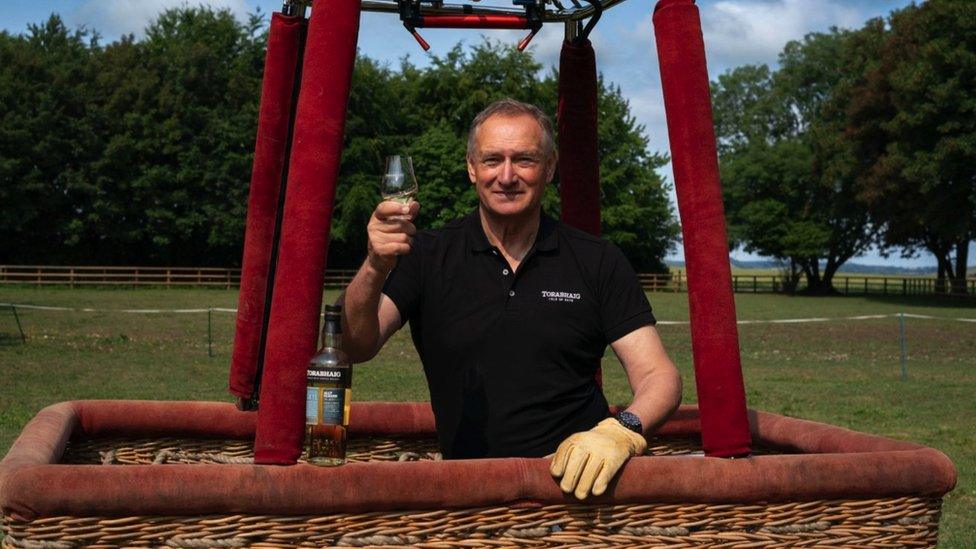
- Published23 November 2022
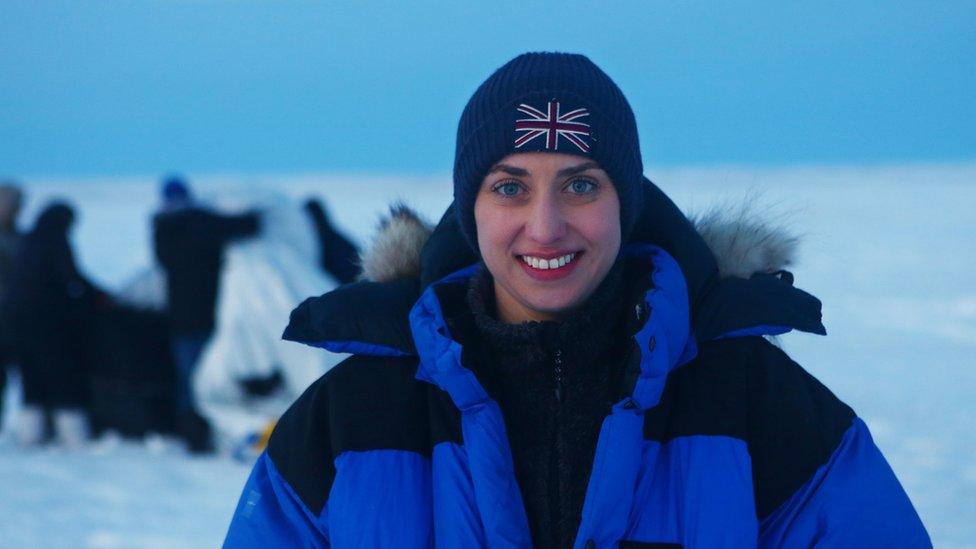
- Published11 November 2021
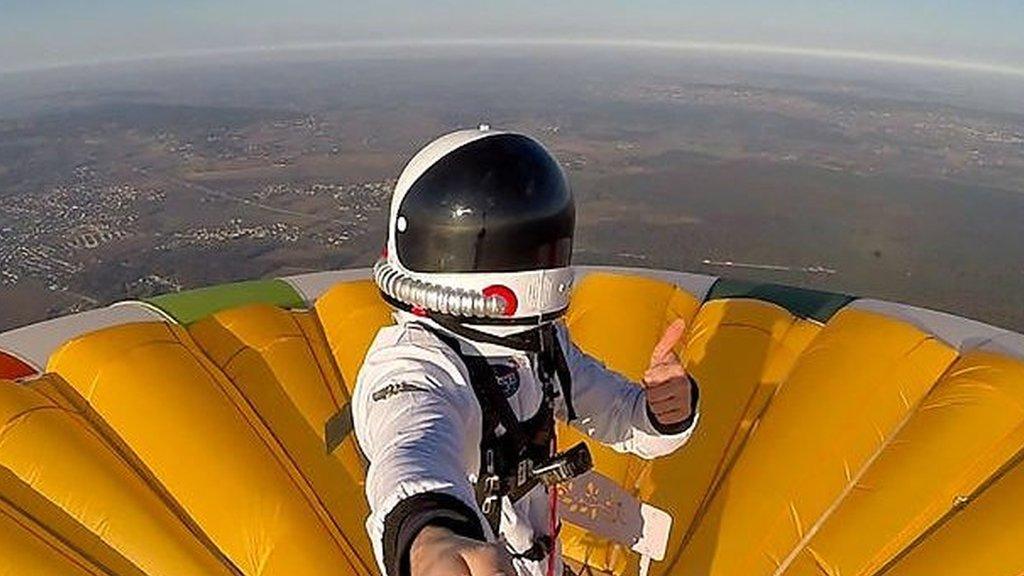
- Published30 December 2016
